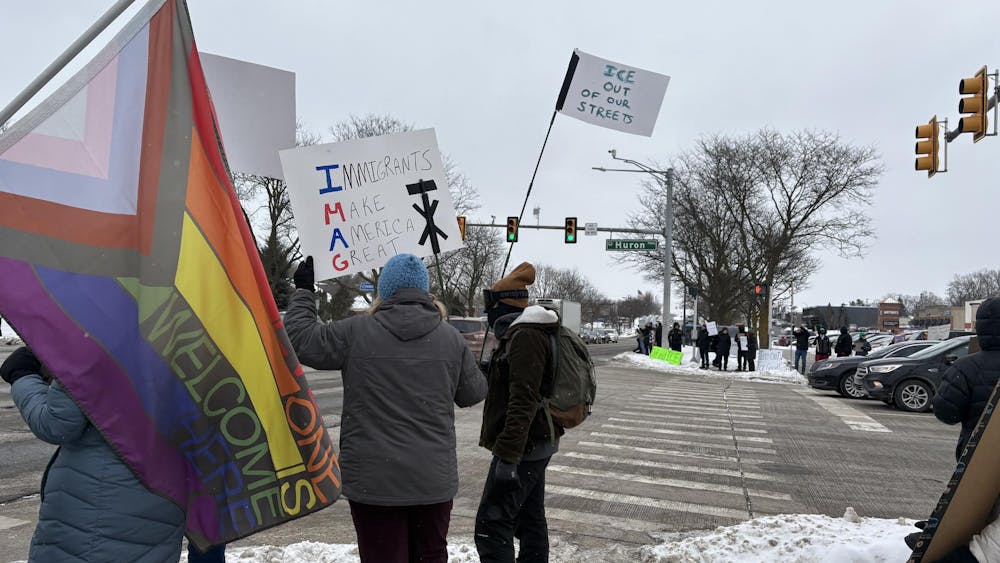The Center for Michigan hosted a community conversation Sunday on race in public affairs at Eastern Michigan University’s student center auditorium. Forty-five community members, including civil rights activists, students and civilians, took part in the Socratic discussion.
The event was both a segment of the Center’s larger discussion series for restoring public trust in Michigan’s government and EMU’s Martin Luther King Day celebration. Dwayne Barnes, outreach coordinator for the Center, facilitated the conversation. EMU’s student body president Tanasia Morton participated as a panelist along with former MLK committee member Nick Brown.
Barnes introduced the mission of the Center for Michigan, breaking it down into sections that “engage, inform and achieve” with a focus on community feedback. Quantitative statistics and recordings of community member responses allow them to create their Bridge Magazine – a nonprofit publication informing state government leaders on issues citizens have.
“We talk to about five thousand Michigan – it takes about six to eight months,” Barnes said.
“When we get out results, we produce a report and say ‘OK this is what Michigan residents are talking about’ on any given topic.”
Bridge Magazine statistics and reports major accomplishments include approval of major expansion on public preschools, tougher teacher certification tests and deeper investment in the “Pure Michigan” marketing campaign for Michigan tourism.
Through a clicker-based PowerPoint survey, audience members answered a series of questions based on their opinions on public safety and race. Questions included the whether body cameras were effective in helping community relations among police, the importance of diversity training in the police force and the effectiveness of ‘stop and frisk’ profiling methods.
Barnes used revealed statistics to urge audience members to give their opinions on the topics on hand. While some questions resulted in split percentages amongst the people, (thirty-eight to 41 people voting per question), heavy majorities toward once answer tended to be the results.
One question asking if the audience agreed that the police needed to improve in communities around Michigan had 82 percent ‘strongly agree.’ Toxic media environments, implicit bias, learned behaviors and lack of community residency among officers were all pointed out as reasons for the tension between the police and the people.
“Community relations, as it relates to police is at an all-time high with the number of situations we saw in the media and social media,” Barnes said, “combined with the election it created an environment of one side against the other.”
The majority of the audience had poor opinions of the effectiveness of body cameras or diversity training on police officer behavior. One outspoken man who required no microphone to have his voice heard, denied the existence of any method that would be a ‘fast track to change.’
While opinions were mostly shared, Barnes urged the importance of differing ones.
“Conversations are better when you have the dissenting opinion as well,” he said, “we can all pat each other on the back but unless we learn how to understand each other we’re going to have these conversations from now until the say we die.”
The Center for Michigan will hold further community conversations to make up the next issue of Bridge Magazine. EMU’s MLK Celebration continues Monday with keynote speaker Benjamin Jealous featured.









